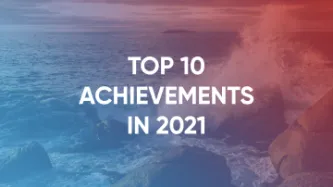Search
Content type: Long Read
A tribunal in the UK has overturned a legal judgment about Clearview’s objectionable scraping of images of people’s faces from the internet. The latest ruling helpfully clarifies what should be in scope of data protection law, and provides a sensible view on how companies that operate across many jurisdictions should not be able to dodge the application of local laws.Clearview’s model of selling intrusive surveillance to law enforcement agencies is not just grim, it also undermines people’s…
Content type: News & Analysis
As the New York Times reports the health programmes are being cut by USAID cuts, the US Government declares them as “inconsistent with the national interest or agency policy priorities.” Sadly at PI we know the kind of foreign aid that governments believe are in the national interest: surveillance funding.We’re alarmed by aid budgets being cut by governments world-wide. People will be hurt, and people will die.And while most of the news has been dominated by the US’s cuts, the UK and France…
Content type: Long Read
Intrusive surveillance technology is increasingly used during protests around the world, and we’ve been tracking its use around the world for years.This technology is often being deployed in secret, without a clear legal basis and without the safeguards and oversight applied to other surveillance technologies under international human rights law.We’ve increasingly observed the use of unlawfully generated and collected data from these technologies being used in court against people exercising…
Content type: Long Read
IntroductionIn early October this year, Google announced its AI Overviews would now have ads. AI companies have been exploring ways to monetise their AI tools to compensate for their eye watering costs, and advertising seems to be a part of many of these plans. Microsoft have even rolled out an entire Advertising API for its AI chat tools.As AI becomes a focal point of consumer tech, the next host of the AdTech expansion regime could well be the most popular of these AI tools: AI chatbots.…
Content type: Long Read
Sports are a huge part of daily life for billions around the world, a fundamental aspect of the rich tapestry of the human experience.Attending a major sporting event can be a formative experience in someone’s life, as a place to share in a communal culture.Increasingly we have seen surveillance, and especially mass surveillance measures, being introduced at sports events impeding the enjoyment particularly of the right to privacy and right to participate in sporting life.When we saw that the…
Content type: Long Read
In 2022, Privacy International continued to produce real change by challenging governments and corporations that use data and technology to exploit us. And, we produced substantial impact that directly affects each of us.
Here are a handful of our biggest achievements in 2022.
WE CHALLENGED COMPANIES TO CHANGE THEIR BUSINESS MODELS AND PRACTICES
Regulators in UK, France, Greece, and Italy fined and restricted Clearview AI’s activity
Clearview AI built a massive database of our biometrics, by…
Content type: Report
Privacy International’s submissions for the Independent Chief Inspector of Borders and Immigration inspection of the Home Office Satellite Tracking Service Programme
The Home Office have introduced 24/7 electronic monitoring and collection of the location data of migrants via GPS ankle tags. This seismic change cannot be overstated. The use of GPS tags and intention to use location data, kept for six years after the tag is removed, in immigration decision-making goes far beyond the mere…
Content type: Long Read
Here are just 10 of our biggest achievements in 2021.
WE CHALLENGED COMPANIES TO CHANGE THEIR BUSINESS MODELS AND PRACTICES
In 2021 we effectively challenged big tech companies including Google, Facebook, Tecno, and smaller and equally urgent companies like Clearview AI, Web-IQ, Palantir etc. and achieved substantial impact including:
- Popular diet apps include better protections in their products
Many diet sites and apps ask you to take tests to create profiles of your body and eating…
Content type: News & Analysis
Background
Today judgment has been handed down in the landmark case of R (HM and MA and KH) v Secretary of State for the Home Department.
This is a Judicial Review decision concerning the UK Home Office’s secret and blanket policy of seizing mobile phones of all migrants who arrived to the UK by small boat between April 2020 and November 2020, and extracting data from all phones. PI was a third party intervener in the case.
The case revealed that migrants were searched on arrival at Tug Haven…
Content type: News & Analysis
In the midst of the atrocious war currently being waged by Russia on Ukraine, on 14 March 2022 Reuters reported that Clearview AI, the infamous online surveillance company, had offered its services to the Ukrainian defense ministry. A day later in an interview for TechCrunch, Ukraine's vice prime minister and minister for Digital Transformation confirmed that the partnership with Clearview AI was "currently in very early development".
Clearview is an online surveillance company that collects…
Content type: Explainer
Following sustained reporting by researchers, journalists and activists around the world, including recent disclosures exposed by the PegasusProject, the surveillance industry is facing scrutiny like never before.
In the latest move, eighteen U.S. lawmakers have today demanded that the U.S. government imposes sanctions on four non-US surveillance companies for, as they mention in their letter, facilitating “disappearance, torture and murder of human rights activists and journalists”.
The move…
Content type: News & Analysis
What if we told you that every photo of you, your family, and your friends posted on your social media or even your blog could be copied and saved indefinitely in a database with billions of images of other people, by a company you've never heard of? And what if we told you that this mass surveillance database was pitched to law enforcement and private companies across the world?
This is more or less the business model and aspiration of Clearview AI, a company that only received worldwide…
Content type: Video
<br />
Links
Daniel's petition: https://www.change.org/p/uk-parliament-ban-advertisers-from-targeting-eating-disorders
PI's diet ads report: https://privacyinternational.org/long-read/4603/unhealthy-diet-targeted-ads-investigation-how-diet-industry-exploits-our-data
More information on Instagram, targeted ads, and Frances Haugen - the Facebook whistleblower: https://privacyinternational.org/news-analysis/4622/reduce-facebooks-harms-teens-target-its-data-hungry-business-model…
Content type: Press release
Privacy International (PI), together with Hermes Center for Transparency and Digital Human Rights, Homo Digitalis and noyb - the European Center for Digital Rights, has today filed a series of legal complaints against Clearview AI, Inc. The facial recognition company claims to have “the largest known database of 3+ billion facial images”. The complaints were submitted to data protection regulators in France, Austria, Italy, Greece and the United Kingdom.
As our complaints detail, Clearview AI…
Content type: Press release
Privacy International announces the launch of two reports as part of its work on Defending Democracy and Dissent.
The report Online Political Ads: A study of inequality in transparency standards builds on our 2019 research findings and delves into the adverse impacts of non-existent or limited transparency on democracy based on two case-studies developed by our partners InternetLab and ELSAM.
The report, Micro-Targeting in Political Campaigns,…
Content type: News & Analysis
The “EU Trust Fund for Stability and Addressing Root Causes of Irregular Migration and Displaced Persons in Africa” (EUTF for Africa) isn’t exactly headline news (and nor does it exactly roll off the tongue), but its influence is vast and will be felt for decades to come for millions of people across Africa.
Set up in the wake of the 2015 ‘migration crisis’ in Europe and largely made up of money earmarked for development aid (80% of its budget comes from development and humanitarian aid funds…
Content type: News & Analysis
Le « Fonds fiduciaire d’urgence de l’Union européenne en faveur de la stabilité et de la lutte contre les causes profondes de la migration irrégulière et du phénomène des personnes déplacées en Afrique » (le « fonds fiduciaire pour l’Afrique ») ne fait pas les grands titres (et il est plutôt difficile à retenir), mais son influence est vaste et aura des conséquences pendant plusieurs décennies sur la vie de millions de personnes sur le continent africain.
Mis en place suite à la « crise…
Content type: Long Read
Tucked away in a discrete side street in Hungary’s capital, the European Union Agency for Law Enforcement Training (CEPOL) has since 2006 operated as an official EU agency responsible for developing, implementing, and coordinating training for law enforcement officials from across EU and non-EU countries.
Providing training to some 29,000 officials in 2018 alone, it has seen its budget rocket from €5 million in 2006 to over €9.3 million in 2019, and offers courses in everything from…
Content type: Long Read
Content type: Long Read
Q&A: EU's top court rules that UK, French and Belgian mass surveillance regimes must respect privacy
Content type: News & Analysis
In the last few weeks, the UK government has announced various new measures to ensure that crossings across the Channel were “inviable” including by appointing a new role of “clandestine Channel threat commander" and further plans to deploy the navy to stop migrants from crossing to the UK from France across the Channel. Premature plans it seems, as not only would such measures be contrary to the UK’s international obligations to allow individuals to seek asylum in the UK, but also since such…
Content type: News & Analysis
Banning TikTok? It's time to fix the out-of-control data exploitation industry - not a symptom of it
Chinese apps and tech companies have been at the forefront of the news recently. Following India's ban of 59 chinese apps in July, President Trump announced his desire to ban TikTok, shortly followed by his backing of Microsoft's intention to buy the US branch of its parent company ByteDance. Other than others lip syncing his public declaration, what does President Trump fear from this app, run by a firm, based in China?
It's all about that data
One clear answer emerges: the exploitation of…
Content type: News & Analysis
On June 9th, in light of the global debate against racial injustices, the company IBM announced they would stop selling facial recognition. In a letter to the US congress, they demanded a “national dialogue on whether and how facial recognition technology should be employed by domestic law enforcement agencies.”
It is worth noting first of all that it is not entirely clear that IBM is actually stopping facial recognition. The letter states that "IBM no longer offers general purpose IBM facial…
Content type: News & Analysis
GDPR was hard won. PI, together with other civil society actors, fought from the beginning for a version of the law that offers the strongest rights and protections in the face of intense industry lobbying.
Holding the hidden data ecosystem to account
Two years ago, we committed to using GDPR to seek to hold to account the hidden data ecosystem - those companies that amass and exploit large amounts of our data for profit.
Here’s some of the action we’ve taken:
In Nov 2018,…
Content type: News & Analysis
Today Advocate General (AG) Campos Sánchez-Bordona of the Court of Justice of the European Union (CJEU), issued his opinions (C-623/17, C-511/18 and C-512/18 and C-520/18) on how he believes the Court should rule on vital questions relating to the conditions under which security and intelligence agencies in the UK, France and Belgium could have access to communications data retained by telecommunications providers.
The AG addressed two major questions:
(1) When states seek to impose…
Content type: Long Read
Sitting on the ground inside an unadorned courtyard in Koira Tegui, one of Niamey’s most popular districts, Halimatou Hamadou shows a copy of what, she’s been told, is a certificate of birth.
The 33 year old woman, who’s unable to read and write, received it days earlier during a crowded public ceremony at a nearby primary school.
“It’s my first document ever,'' she says, with surprise.
Thanks to the paper, she’ll be able to take part in a crucial passage for the future of Niger: the…
Content type: Long Read
Photo: Francesco Bellina
Driven by the need to never again allow organised mass murder of the type inflicted during the Second World War, the European Union has brought its citizens unprecedented levels of peace underpinned by fundamental rights and freedoms.
It plays an instrumental role in protecting people’s privacy around the world; its data protection regulation sets the bar globally, while its courts have been at the forefront of challenges to unlawful government surveillance…
Content type: Long Read
A new study by Privacy International reveals how popular websites about depression in France, Germany and the UK share user data with advertisers, data brokers and large tech companies, while some depression test websites leak answers and test results with third parties. The findings raise serious concerns about compliance with European data protection and privacy laws.
This article is part of a research led by Privacy International on mental health websites and tracking. Read our…
Content type: News & Analysis
This article is part of a research led by Privacy International on mental health websites and tracking. Read our full report.
According to the World Health Organisation (WHO), 25 percent of the European population suffers from depression or anxiety each year, yet about 50% of major depressions remain untreated. This means that everyday thousands of people are looking for information about depression online. They take tests to find out how serious their symptoms are, they try to access…
Content type: News & Analysis
On Tuesday, Twitter disclosed that it may have shared data on users with advertising partners, even if they have opted out from personalised ads, and shown people ads based on inferences made about the devices they use without permission. According to Twitter, the issue was fixed on Monday, even though it is not yet clear how many users have been affected.
This is not the first time that Twitter had to admit that it leaked user data to advertisers. In May 2019, the social…



























